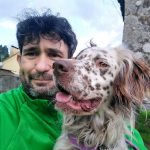Can Dogs Eat Cat Food? Unraveling the Nutritional Mismatch

When it comes to the culinary habits of our furry companions, it's not uncommon for pet owners in multi-species households to witness some food-sharing endeavors. Whether due to neglect, lack of attention during feeding time, or as a temporary measure when one pet's food runs out, the practice of letting animals indulge in each other's meals is not advisable, particularly when it comes to dogs and cat food.
Why Dogs Shouldn't Feast on Feline Fare:
Pet foods are not one-size-fits-all for a reason – each species has distinct nutritional requirements. Allowing dogs to consume cat food can lead to a range of health issues, and here are some compelling reasons why:
- Tailored Nutrition for Puppies: Dog food is specifically formulated to provide essential nutrients for healthy development, including vitamins and minerals in precise amounts to prevent nutritional deficiencies. Feeding dogs cat food may result in deficiencies causing anemia, dental issues, visual impairments, or muscular problems.
- Excessive Fats and Proteins: Cat food tends to contain significantly higher levels of fats and proteins (almost double the recommended amount for dogs). This imbalance can impact the weight of dogs, as their diet should also include plant-based products for a balanced daily intake. Excessive proteins may strain the liver and kidneys.
- Carbohydrate Discrepancies: Dogs derive energy from carbohydrates, while cats obtain it from fats. Cat food typically has lower carbohydrate levels. Too much fat in a dog's diet can lead to pancreatic damage. Therefore, dog food includes grains to provide essential carbohydrates.
- Gastrointestinal Distress: Feeding dogs cat food can result in gastrointestinal problems, manifesting as vomiting and diarrhea. Frequent occurrences may lead to dehydration and anemia.
Can a Puppy Eat Cat Food?
When it comes to puppies, the risks associated with consuming cat food are similar to those for adult dogs. However, due to their developing systems, puppies may be more susceptible to nutritional imbalances. It's crucial to stick to a specially formulated puppy food to ensure proper growth and development.
Managing the Situation:
While an occasional lapse may not pose a severe threat, habitual consumption can adversely affect a dog's health. Preventive measures include:
- Separate Feeding Spaces: Ensure dogs and cats are fed at the same time but in separate rooms.
- Elevated Cat Food: If free-feeding your cat, place their dish in elevated locations inaccessible to dogs.
- Taste-Enhanced Dog Food: Consider switching your dog to a more flavorsome dog food to address any preference for cat food.
In conclusion, occasional lapses may not have severe repercussions, but consistent access to cat food can jeopardize your dog's well-being. It's crucial for pet owners to be aware of and actively manage the feeding habits of their multi-species households.
Feel free to suggest any changes or additions to better tailor the content to your preferences.

Alberto Pardal,
As an expert in the dog world, I provide valuable information about dog breeds. With years of experience, I offer informative articles to help owners better understand their pets and promote a healthy bond
